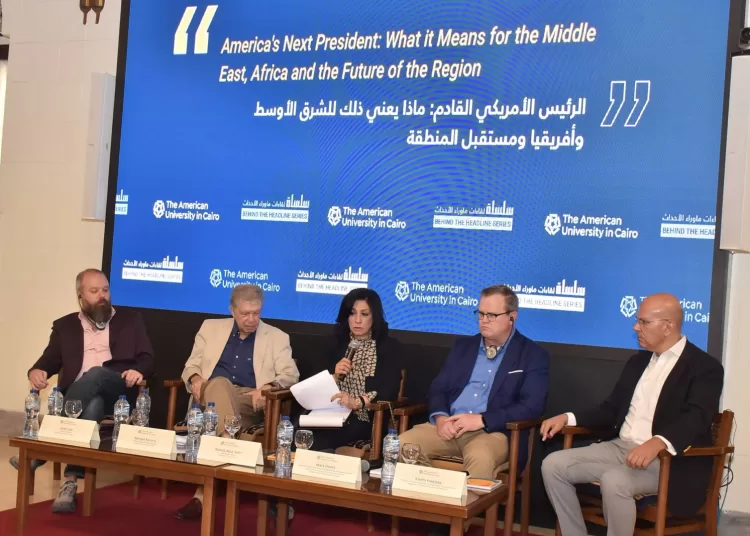The American University in Cairo (AUC) recently held the inaugural session of its “Behind the Headlines” media roundtable, an event that aims to explore the potential impact of the upcoming US presidential election on the Middle East and Africa.
Titled “America’s Next President: What it Means for the Middle East, Africa, and the Future of the Region,” the roundtable focused on possible changes in US foreign policy, regional geopolitical stability, and the consequent effects on the future of these areas.
Bahgat Korany, a professor of international relations and political economy and founder of the AUC Forum, expectedthe election to be tightly contested, with a narrow victory for either candidate.
“Regarding Israel, Iran, and the Middle East, I don’t foresee significant differences between the two main contenders, although their approaches may vary,” Korany said.
Commenting on the Gaza conflict, he expressed pessimism, citing evidence that the reconstruction of the war-ravaged territory could take up to 80 years.
Nonetheless, he remarked, “historically, crises often spark change, so the current Arab crisis might stimulate a new dawn in the Middle East.”
Mark Deets, director of the Prince Al-Waleed Bin Talal Bin Abdul-Aziz Al-Saud Centre for American Studies, referred to consistency across party lines in US policies that affectAfrica.
Discussing potential differences between Republican and Democratic administrations, Deets foresaw minimal changes in US policies towards African nations like Sudan and Ethiopia.
“The US might become more involved in the Nile River water discussions, if it intertwines with competition against Russia and China,” he said.
Sean Lee, a political science assistant professor, discussed Lebanon’s future, suggesting that whether under a Trump or a Harris administration, the US response to Lebanon’s situation might not see significant variation.
“Both would likely be reactive to changes on the ground,” Lee said.
Lee noted the deterioration of Hezbollah’s capabilities, with Israel intent on maintaining this strategy.
“Even if Hezbollah is dismantled as a military organisation or disbanded as a political entity, which I personally doubt, I believe that the ongoing occupation of south Lebanon will provoke a different form of resistance from the Lebanese people,” Lee said.
Ambassador Karim Haggag, professor of practice at the AUC’s School of Global Affairs and Public Policy, advised a balanced view when considering the election’s aftermath.
From a diplomatic standpoint, Haggag cautioned against being overly pessimistic or optimistic regarding the election’s impact on the region’s future.
“I anticipate that Arab nations will take active measures to address the challenging issues they currently face in the region,” he concluded.






Discussion about this post